As a rabbit owner, you undoubtedly want what is best for your furry friend. With that comes knowing what kind of food and treats you can give them — safely.
Even the best indoor rabbits need careful attention and preparation when deciding what is best.
Mangoes are a sweet, delicious fruit that most humans enjoy with a smile. Nothing tops the tender and juicy treat on a hot summer’s day. But can rabbits have mango?
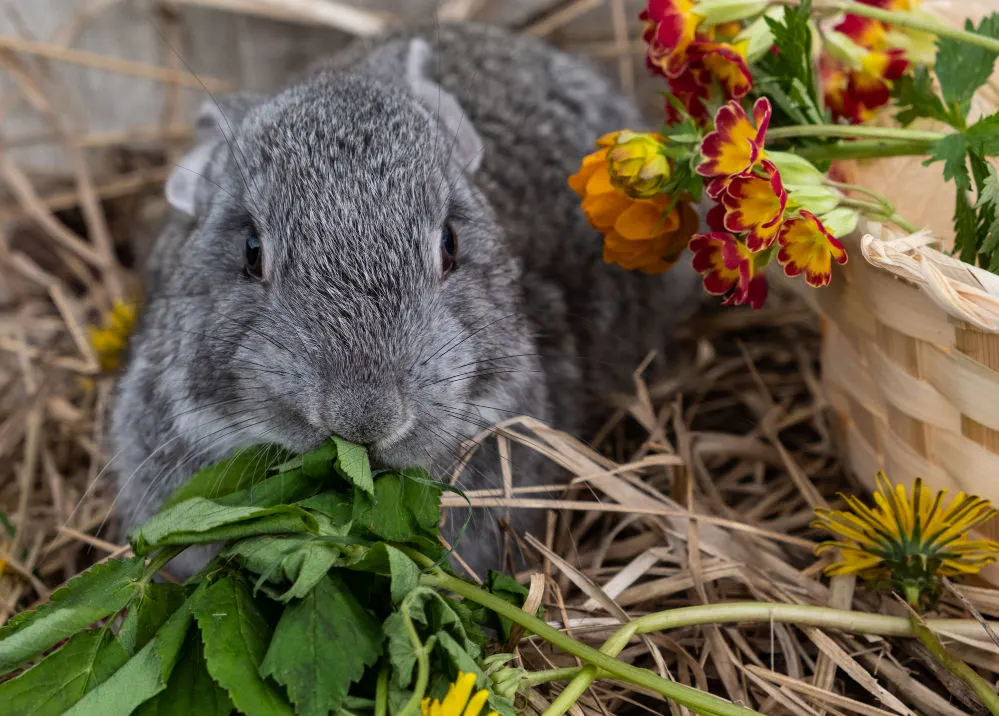
Well, the short answer is yes. Rabbits often adore the taste of fruits, especially sweet ones like mangoes. Word to the wise, though — it is always best to do your research before giving your hopping friend any new food.
So, read on to discover the ins and outs of mangoes and your rabbit companion.
Can rabbits eat mango flesh?
Mangoes are an incredibly delicious and succulent fruit that most rabbits love to nibble on. Fresh fruit from the mango could serve as a treat for them. However, like most good things in life, they are best given in moderation.
They are, after all, one of those fruits with high sugar content, containing around 1.6 ounces (46 grams) of sugar per fruit. It may not sound high, but for a little bunny body it sure is. Due to this high sugar content, it is essential that you maintain the right balance and only give it to them in small amounts.
What happens when your rabbit eats too much sugar? Well, a rabbit’s digestive system is suited mainly for digesting foods high in fiber. The same can’t be said for sugary foods.
Eating lots of sugar can lead to a digestive imbalance, causing diarrhea and stomach pain. It can also lead to obesity over time. While mangoes have a high fiber content, large quantities may lead to digestive issues.
Can rabbits eat mango skin?
There are many nutritional benefits when it comes to mango skin. The mango peel contains many nutrients and antioxidants that benefit your rabbit’s health.
First, mango skin contains a lot of vitamins C and A, essential to a baby and adult rabbit’s diet. The mango skin also has a higher fiber content than the flesh, so they are an excellent option for a tasty snack.
Can rabbits eat mango seeds?
Mango seed, in this case, refers to the large pip in the center of the fruit. You might wonder if leaving the pip in when feeding your furry friend is alright. The answer is no — you should always remove the pip from the mango.
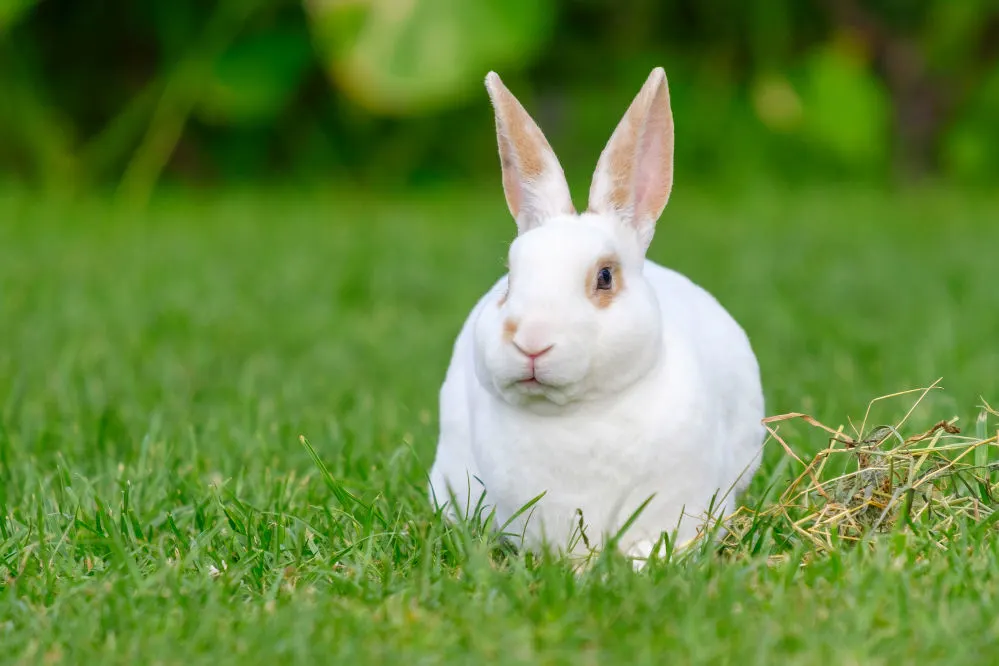
The hard outer shell of the mango pip can cause digestive and dental issues, despite rabbits having stronger gnawing abilities. Plus, the mango pip contains no nutrients for your pet, so it is best to leave it out entirely.
Can rabbits eat mango leaves?
Leafy greens are often an essential part of a healthy diet for your pet rabbit. Mango leaves are no exception. They are non-toxic to rabbits and contain a lot of fiber and nutrients that could benefit your companion in the long run.
Mango leaves contain essential nutrients like calcium, magnesium, potassium, phosphorus, and vitamin A. Again, they have good dietary fibers which your rabbit can easily digest.
However, some owners have experienced more harmful effects, like their rabbits choking or not finding the mango leaves easy to digest. To avoid a choking hazard, you should always cut the leaves into bite-sized pieces.
If you are worried or unsure, it is best to consult a veterinarian before feeding mango leaves to your rabbit.
Are mangoes healthy for rabbits?
Mangoes can be a sweet and healthy treat for your rabbit friend. Like most things, though, there are pros and cons to consider. Let’s look at an overview of the health benefits and concerns associated with mango.
Mango health benefits:
- High fiber content: The high fiber content in the mango flesh, skin, and leaves offers a much-needed boost to your rabbit’s digestive system. The fiber content can assist in helping their digestive system run smoothly.
- High mineral content: Mangoes contain a large number of minerals that are good for a healthy bunny rabbit. These minerals include calcium, magnesium, phosphorus, and potassium. Each of these minerals is necessary for your companion’s healthy bodily functions.
- Vitamin A and C: The high vitamin A and C content are essential in a rabbit’s diet. Each of these vitamins is important for promoting improved health and function of the immune system.
Mango health concerns:
- High sugar content: Rabbit digestive systems aren’t suited for digesting large quantities of sugar, so too much sugar can cause problems. It can lead to an upset stomach, runny tummy, or excessive weight gain in your fuzzy friend.
- Pesticides or parasites: There is always a risk of pesticides or pests on a mango, particularly the skin. So, always ensure you’ve properly washed it and the fruit is free of pests before feeding your rabbit.
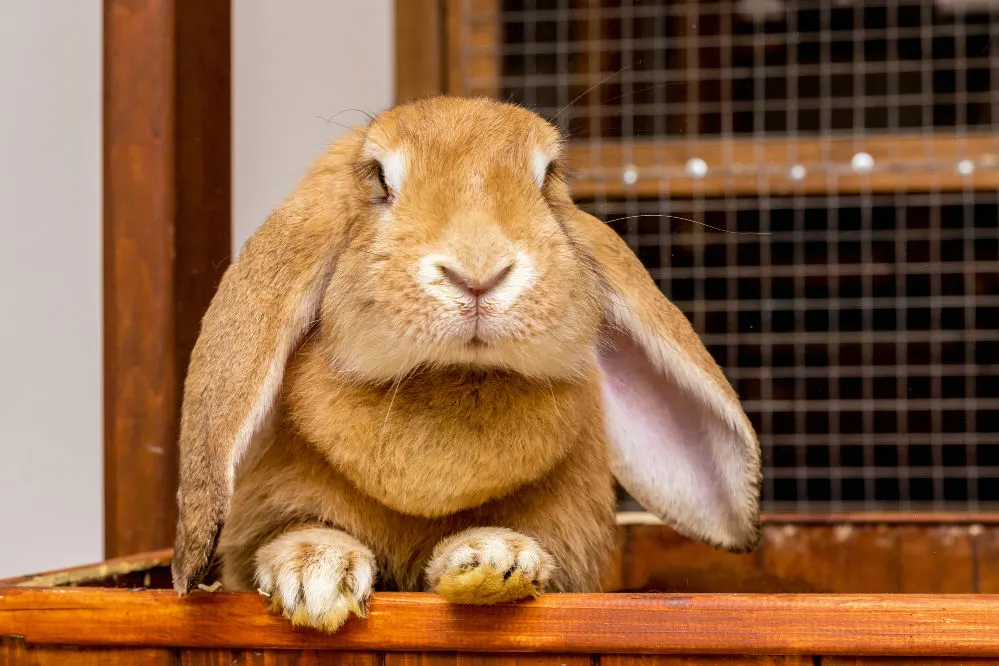
- Acidity: Mangoes are highly acidic, and too much of it can cause a rabbit’s health risks and lead to gastrointestinal diseases.
- Overly ripe mangoes: Be careful of feeding your rabbit an excessively ripe mango. Like most fruit, when it is overly ripe, it can lead to an upset stomach and digestive problems.
Can baby rabbits eat mangoes?
Now, after all that, you are probably wondering whether or not mangoes are good for baby bunnies. Baby rabbits have a much more sensitive digestive system than adult rabbits do. It is definitely a little more complicated feeding babies fruit.
Fresh fruit, especially mangoes, typically contains too much sugar for a baby rabbit. While some vets say you can limit fruit to about once a week, others say to avoid it until they are much older. Some rabbit owners generally wait until their rabbit is 12 weeks old before introducing them to fruits.
How to feed mango to your rabbit
Considering what you’ve learned so far, it’s clear that mangoes can be a quick and tasty treat for your fuzzy rabbit friend. Now, it’s just a matter of finding the correct proportions and preparations.
First, you’ll need to get the best mangoes you can find. Not those off-looking mangoes at the bottom of the barrel, but the brightly-colored, fresh, and plump ones.
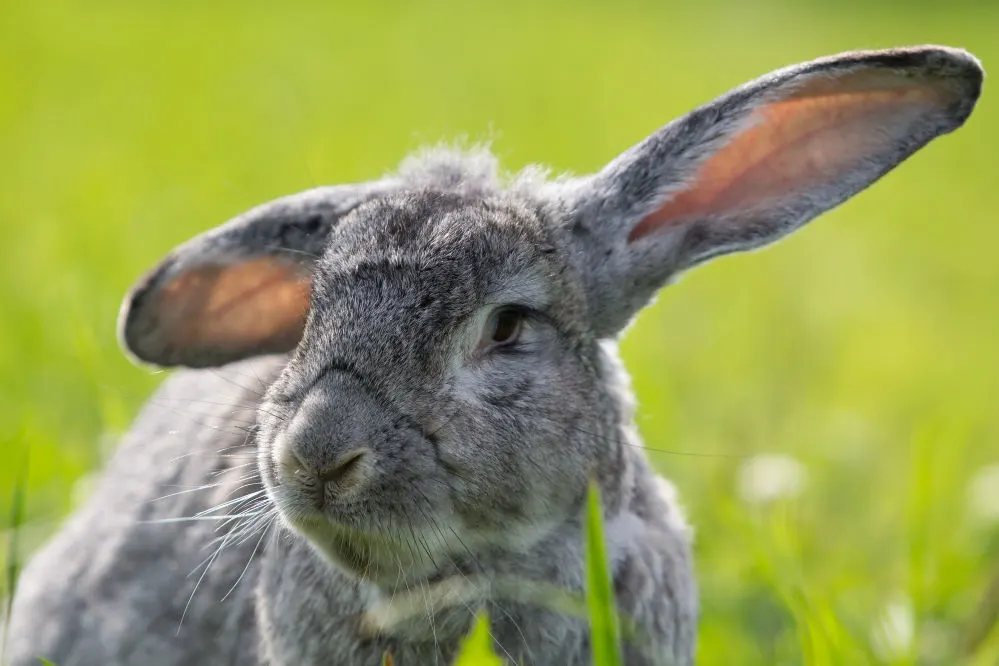
Once you’ve got your fresh mangoes, you’ll need to prepare them well. Clean them thoroughly with warm water and mild soap before cutting them open. This is to ensure no pesticides or chemical residues are left over.
Then you can cut them open and into whichever shape your rabbit is happy with after removing the pip. Once the pip is gone, you’ll want to cut the mango into small, bite-sized pieces, especially if this is your rabbit’s first time trying it.
Once that is done, you can present your hopping companion with a delicious and juicy mango fruit dish. Remember to keep track of how much you’re giving them so you don’t give them too much.
Can I feed my rabbit too much mango?
Yes, yes, and yes again. You can definitely feed your rabbit too much mango. It is imperative to their health that you maintain the right balance and feed them an average of one thin slice of mango up to three times a month.
As mentioned before, mangoes have extremely high sugar content, and too much of it can result in digestive problems. A rabbit’s digestive system is built to digest fibrous foods like hay, not so much sugary ones like fruits. Too much sugar, as a result, can lead to health issues like obesity or a runny tummy.
Too much mango also means too much acid. These highly acidic fruits can upset the digestive system’s delicate balance, resulting in various gastrointestinal diseases and problems.
Luckily, the best way to avoid feeding your rabbit too much is relatively easy. As long as your pet gets plenty of fibrous food like hay or grass, water, and leafy greens, they should be alright. Other than that, they can happily indulge in the occasional sweet treat.
So, can rabbits have mango?
No matter how many rabbit breeds there are or which one you may have, as a rabbit owner, you no doubt want to provide your companion with the best care. From fresh vegetables and leafy greens to sweet fruits, your pet rabbit can enjoy various nutritious foods in their diet.
Mangoes are a delicious treat to give to your fur baby. They provide good nutrients, vitamins and minerals, and fiber — all necessary for a rabbit’s health. However, just keep in mind what you now know.
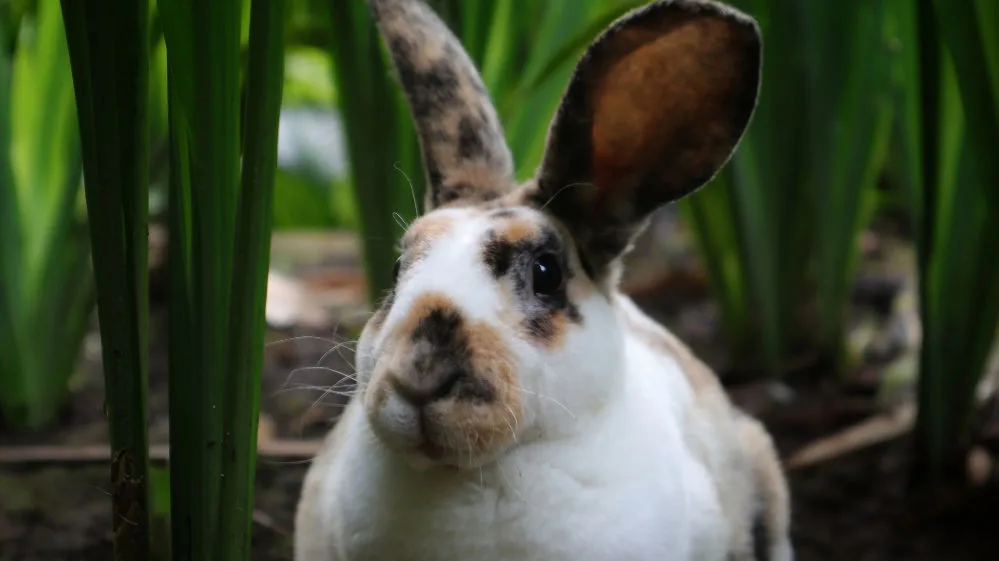
If you make sure that the right parts of the mango are given in small amounts, you and your bunny will be just fine. However, if you are unsure, it’s safest to consult a vet, especially if something feels off.
Now that you better understand whether rabbits can have mango, why not learn more about when rabbits sleep? After all, you can never be too prepared when having a fuzzy bunny as an addition to your family.
Steph Dyson is a travel journalist by trade but a lover of all small pets. She’s been a pet mum to everything from gerbils to guinea pigs, rabbits to hamsters, and fish to dogs of all shapes and sizes. She wants to share her years of experience with small pets and make Small Pet Guides the go-to website for pet owners seeking information and care advice.

